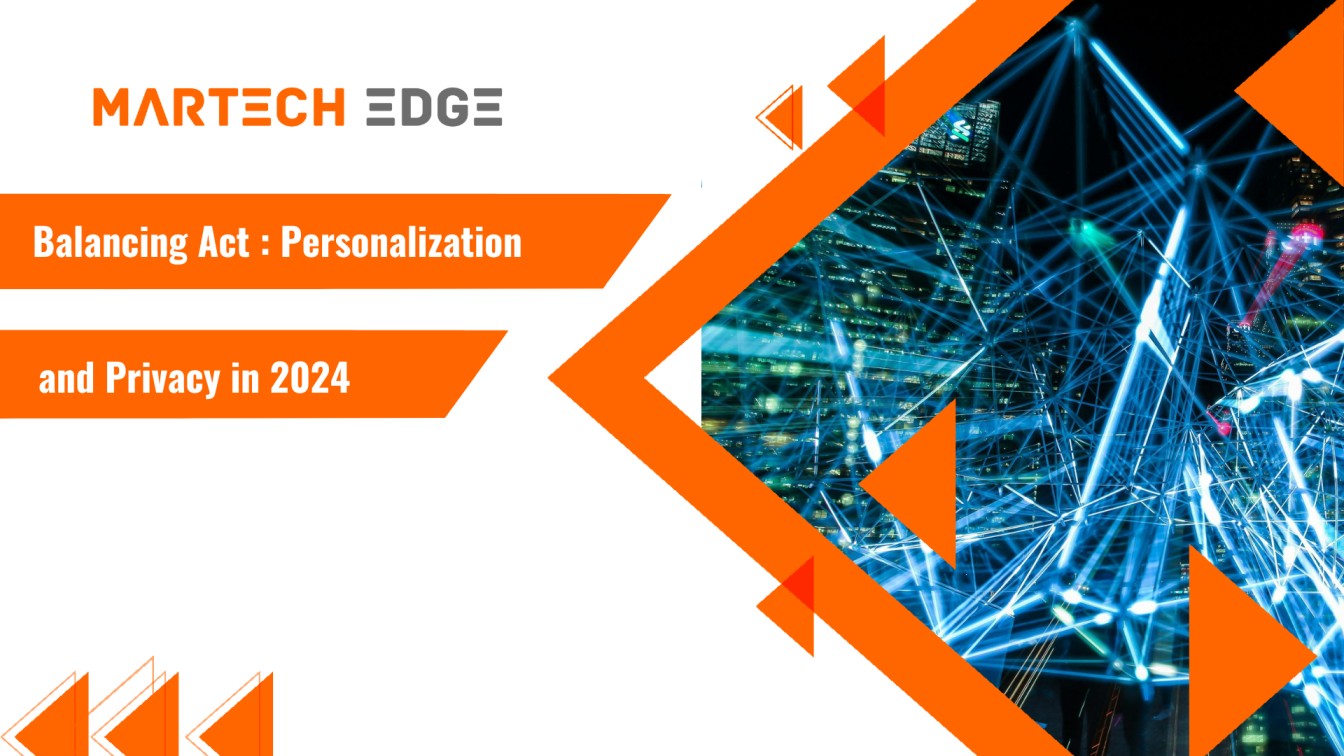
Balancing Act: Personalization and Privacy in 2024
As 2024 unfolds, the art of personalization takes center stage, requiring a thoughtful and strategic approach that respects user boundaries. Amidst growing concerns and regulatory developments, businesses are challenged to weave together an experience that is both intimately customized and ethically aligned with the evolving standards of digital privacy.
"In the next year, we can expect to see a continuation of the trend towards tighter regulations and increased protection of individual data privacy. This will likely include new laws and regulations around AI, speech, and likeness, as well as enhanced privacy laws globally and a focus on sustainability and reducing carbon emissions in data centers. There may also be a push for standardization of regulations across different regions, particularly in the US. Companies will need to invest in compliance tools and audits to avoid fines, and there may be a stronger emphasis on data protection and transparency in the advertising industry. Additionally, there is potential for increased scrutiny and potential actions against major players like Google and Meta for anti-competitive practices” said Kristina Prokop, CEO & Co-Founder of Eyeota.
The interplay between personalization and privacy has become a delicate dance, and as we step into 2024, it is a narrative that continues to shape the trajectory of user experiences. AI plays an important part in this dance of personalization and privacy.
Jeff Ragovin, CEO of Fyllo has supported by saying “I think one of the most useful applications of AI in marketing is "Personalization." AI enables marketers to analyze vast amounts of data to understand individual customer preferences, behaviors, and patterns. This information is then used to tailor marketing messages, content, and experiences on a highly personalized level. Personalization powered by AI enhances customer engagement, increases the relevance of marketing efforts, and ultimately contributes to improved customer satisfaction and loyalty”.
Key Takeaway
“Within a first-party data silo, customers still want personalization. In other words, if one is visiting a premium video site like YouTube or streaming channel like Max, most people are willing to share their personal information for access. And as a result, most of us appreciate the personalized recommendations based on previous viewings. We also can trust that our information is not being resold (as it might be on the open web)”.
“What people don’t want, on the other hand, are scary applications like digital ads targeted to conversations they had in the privacy of their own home. With more state privacy regulations in the US and laws in Europe, audience targeting will become more challenging. For example, you won’t be able to track people across sites for ad retargeting. Overall, consumers are becoming more knowledgeable and they will delete accounts that they don’t trust. However, most of us agree that an anonymous user experience isn’t good for the consumer because it will always be an average, generic and underwhelming experience” said Brian Pugh, Chief Information Officer, Comscore.
The trajectory of personalization in a privacy-conscious era demands continued vigilance, innovation, and collaboration between stakeholders. Striking the right balance is not a one-time achievement but an ongoing commitment to evolving with the ethical and regulatory landscape. The art of personalization, when performed with respect for privacy, is a powerful catalyst fostering tailored content coexisting seamlessly with individual privacy rights.

business technology
Join our newsletter!
Enter your email to receive our newsletter.




